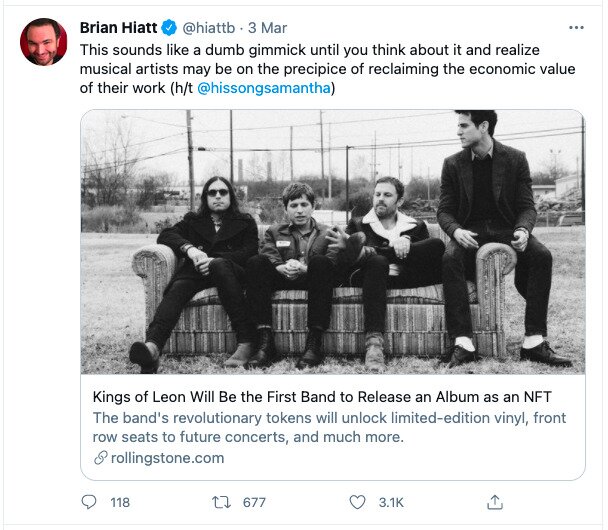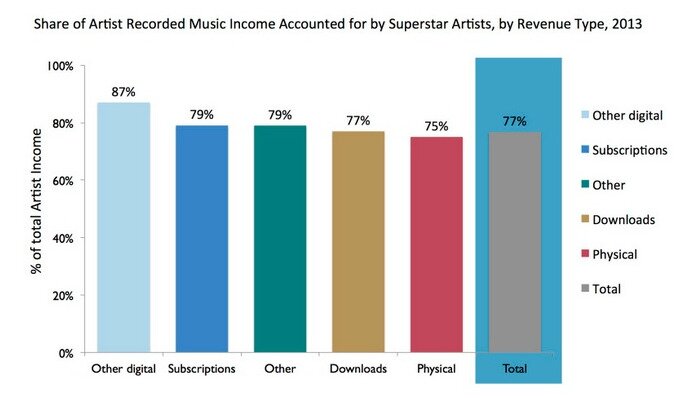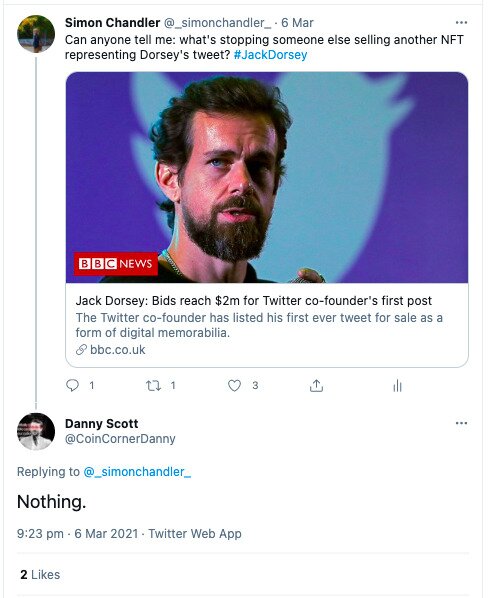- >News
- >Why Kings of Leon Releasing an NFT Is Not a Revolution for Musicians
Why Kings of Leon Releasing an NFT Is Not a Revolution for Musicians
Kings of Leon made headlines last week, and it wasn’t specifically for their music. No, it was because they decided to release their latest album ‘as’ (or “in the form of”) a non-fungible token. That is, they released their latest album, and they also released three different non-fungible tokens to go with it, offering fans the chance to own extra album artwork or “live show perks” in addition to the recorded music itself (which can obviously still be bought separately as a vinyl record, CD or mp3 download).
Kings of Leon have clearly done an excellent job of riding the growing interest in NFTs (and crypto), gaining more publicity than they would have otherwise attracted for their music alone (which, FYI, is competent but unexceptional). In fact, some music journalists went even further than this, claiming that the American band have helped put musicians “on the precipice of reclaiming the economic value of their work.”
This, however, is highly unlikely. Musicians have long been able to release extra merchandise in addition to their actual music, and the stamp of uniqueness which an NFT provides won’t enhance this process, except by providing some short-lived novelty and the illusory promise of monetary gains (for the holder of an NFT).
What Kings of Leon Releasing an NFT Actually Means
As the above indicates, the way Kings of Leon’s move has been presented via the media is frustratingly — and perhaps intentionally — vague. They’ve released their new album “as a non-fungible token,” the headlines tell us. Well, no they haven’t.
Looking at NFT marketplace OpenSea, they’ve released an NFT (which is just an alphanumeric code) that also grants the holder access to “digital collectible album artwork,” a digital download of the album, and a limited edition vinyl copy of the album. They’ve also released another, rarer kind of NFT that throws in live show benefits, such as front-row seats for life.
Some observers — tech journalists, mostly — haven’t been hoodwinked by the hype surrounding this offering, which is basically just a trendy way of offering band merchandise.
Source: Twitter
That said, some people — music journalists, mostly — are excited by the fact that NFTs could potentially provide an extra revenue source for musicians. This is basically because the smart contracts controlling such NFTs can be configured to provide a percentage of the proceeds of each NFT sale to the related musician.
Source: Twitter
Problems with Non-Fungible Tokens for Musicians
In theory, NFTs may provide musicians with extra revenue streams, while also providing them with a certain measure of control over such streams. However, there are two main problems with this hypothesis.
Firstly, the vast majority of musicians and acts are unlikely to be in a position where they can actually release and sell NFTs. Think of every local and independent band in existence, the ones who actually make up the vast majority of musicians in the world. Not only will such bands almost invariably lack the financial means to ‘partner’ with, say, YellowHeart (as Kings of Leon did) to produce their own NFT, but they will also lack the fanbase willing to buy their NFTs in sufficient numbers to justify the expense.
Indeed, if music NFTs do become firmly established, they’re likely to intensify already growing inequalities between elite (i.e. those boosted and bankrolled by major labels) and independent musicians. This is suggested by the music industry’s recent history, with a 2013 study from MIDiA Research showing that the top 1% of artists earned 77% of recorded music income, and with a more recent 2019 study showing that 5% of artists are swallowing up 85% of all live music revenue.
Note that the top 1% of artists do better at earning revenue from digital sources than other artists. Source: MIDiA Research
Secondly, in cases where NFTs are used, they’re unlikely to restore power to musicians. If they really do offer a valuable revenue stream, they will almost certainly be co-opted and controlled by major record labels, which in the recent past, for example, managed to transform streaming from a potentially democratizing force to a cash cow now earning them around $1 million an hour.
Just because musicians can now theoretically set up their own smart contracts to control revenue streams doesn’t actually mean their percentages will be fair. They can also do the same right now with legal contracts, but given that most musicians are extremely eager to be signed by a label — and that labels are the gatekeepers to exposure — they generally sign bad contracts for themselves. The same will be true of NFTs: artists signed to and supported by major labels will agree to nearly whatever terms these labels impose on them.
Authenticity and Profits
More generally, it needs to be asked whether music NFTs will actually allow musicians to do anything they can’t do right now. The answer to this is mostly ‘no.’
Nothing is stopping any musician from releasing merchandise right now, regardless of whether this is digital artwork or a line of t-shirts. What does throwing in an NFT add to this equation? Arguably a source of authenticity, but there’s little data on how much of a problem counterfeit merchandise currently is in the music world, and even if it is a problem, counterfeit merchandise will continue to be sold in a world with music NFTs.
It’s also likely that, if music NFTs do take off, you will end up having counterfeit Kings of Leon NFTs, and whatever else.
Source: Twitter
Of course, one thing that hasn’t been mentioned yet is speculation. It’s possible that at least some musicians may hope to sell NFTs for ridiculous sums of money, with buyers hoping that the NFTs they acquire will one day be worth even more money (which could potentially earn bands more money yet again). That this is a possibility was brought home by Grimes (another musician) selling ten pieces of digital art ‘as’ NFTs for just shy of $6 million.
However, it’s hard to say just how widespread such a practice could become. It’s likely that, if the supply of music NFTs increased in such a way as to make them common, they wouldn’t sell for particularly high prices, particularly as the novelty of NFTs waned and if the current bullish crypto market also ended.
Still, we can say one thing for certain: Kings of Leon have succeeded in their mission. They’ve generated lots of publicity for their new album, and they’ve even risen to fourth in the seven-day volume charts for new NFTs. Ka-ching!





